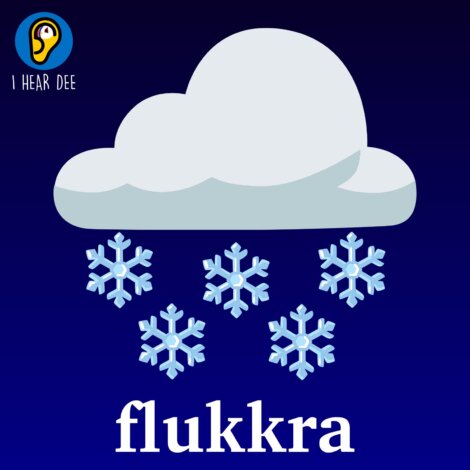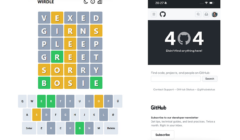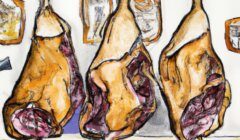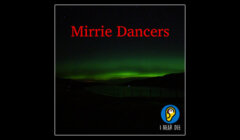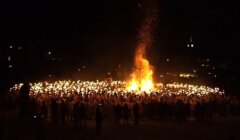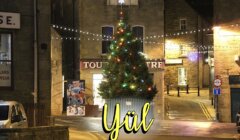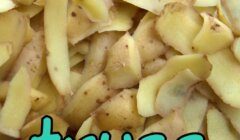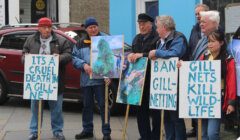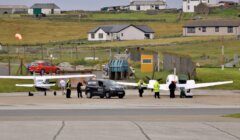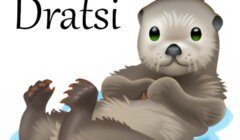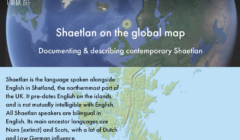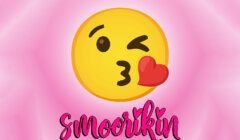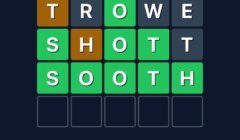Community / History in a wird: the origins of ‘flukkra’
AFTER a break of several months the I Hear Dee project’s History in a Wird series is back, this time exploring the origins of the word ‘flukkra’.
Run by linguist Dr Viveka Velupillai and native Shaetlan speakers Roy Mullay, Julie Dennison, Andrew Blance and James Stewart, I Hear Dee aims to document and describe the contemporary use of the distinctive language variety.
In researching the history of the local tongue, the I Hear Dee team is regularly unearthing fascinating twists and turns, which Shetland News is very happy to share to give it a wider audience.
History athin a wird. Da snüds an wups idda vaige o a wird is fascinatin.
Flukkra is a Shaetlan specific wird at means yun big saft snaaflakes at faas doon peerie wyes. Technically hit’s a collective plural.
Hit isna fun in Orkney or idda mainland Scots varieties. Da wird can be fun firbye in Faroese flykra, Danish flok & Swedish flocka, aa meanin ‘(snaa)flake’. In aa yun languages it’s a lonn fae Middle Dutch/Low German vlocke, an laekly cam in ti da vocabularies becis o da Hansa trade. Whar it ultimately cam fae isna kent.
Whit wis wint tae be seid – at it gings back ti da Latin floccus ‘toosk, hentilaget (maed o oo)’ – isna tocht tae be richt onymair. A newer idee is at it gings back tidda Proto-Germanic *flukk/gōn- ‘tae flee, flap’. Da Aald Norse flóki ‘toosk (o hair/oo)’ is da ancestor o da Shaetlan flog ‘wittered/feltit toosk o hair/oo’. Hit haes anidder origin an gings back tidda Proto-Germanic *flaka-/*flōka(n)- ‘flat’, but da twa wirds micht’ll a reinforced een anidder.
P.S. Da aald Shaetlan verb tae barflog means ‘tae baet da scarf, tae swap yirsel ower da breest an aboot da airms/shooders tae keep yirsel waarm”. Hit’s a aald expression.
Become a member of Shetland News
Athin Nynorsk hit’s still caaed at berje floke an means da sam. In regional Swedish it is att bärja flok an means da sam an aa. Hit derives fae da Aald Norse berja ‘tae baet’ an da previously mentioned flóki, an da ultimate origin o dat haes tae dø wi baetin (laek da Gothic flōkan ‘baet yirsel apø da breest; wail’, Latin plango ‘baet’, etc) so at da original meaneen o da Aald Norse flóki widda bøn somethin laek “somethin at’s bøn baeten inti felt”. So at da expression barflog/berje floke/bärja flok wid laekly ultimately a bøn braaly descriptive: “tae baet [yirsel] idda rhythmic wye at a body baets oo tae git felt” or somethin laek dat.
And here is the English translation:
Flukkra is a Shaetlan specific word meaning those big soft snowflakes that gently flutter down. Technically it’s a collective plural.
It is not found in Orkney or in the mainland Scots varieties. The word can also be found in Faroese flykra, Danish flok & Swedish flocka, which all mean ‘(snow)flake’. In all these languages it is a loan from Middle Dutch/Low German vlocke, and probably entered the vocabularies due to the Hansa trade. The ultimate origin is unknown.
The earlier suggestion that it goes back to Latin floccus ‘tuft, wisp (of wool)’ is no longer widely held. A newer suggestion is that it goes back to Proto-Germanic *flukk/gōn- ‘to fly, flutter’. The Old Norse flóki ‘tuft (of hair/wool)’ is the ancestor of Shaetlan flog ‘tangled/felted tuft of hair/wool’. It has a different origin and goes back to Proto-Germanic *flaka-/*flōka(n)- ‘flat’, but the two words might have reinforced each other.
P.S. The old Shaetlan verb tae barflog means “to beat oneself crosswise over the chest and around the arms/shoulders to keep oneself warm”. It’s an old expression.
In Nynorsk it is still called at berje floke and means the same. In regional Swedish it is att bärja flok and also means the same. It derives from Old Norse berja ‘to beat’ and the previously mentioned flóki, the ultimate origin of which has to do with beating (such as Gothic flōkan ‘beat oneself on the chest; wail’, Latin plango ‘beat’, etc) so that the original meaning of Old Norse flóki would have been something like “that which has been beaten into felt”. So that the expression barflog/berje floke/bärja flok would probably ultimately have been quite descriptive: “to beat [oneself] in the rhythmic way one beats wool to get felt” or something like that.





